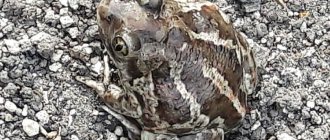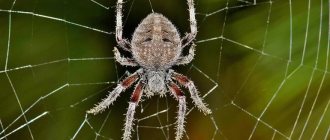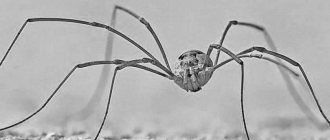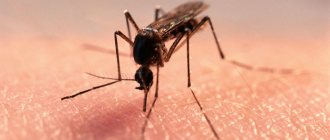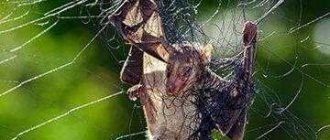The word “sex” translated from English simply means gender (in the sense of male or female), but in our vocabulary it has acquired the meaning of an action that a man and a woman (not always in this combination) perform for reproductive purposes or to simply achieve pleasure. In some sources it is replaced by the concept of “marital duty,” but in our liberated days... And the word “debt” itself somehow does not fit with this process, which is sometimes “engaged” by completely unmarried people. But what about animals, our smaller brothers? Do they enjoy sex, do they strive for it and can they get it?
Pleasure and satisfaction
In a broad sense, pleasure is the satisfaction of some need, hence the common root of these two words. Instincts dictate to all living beings their needs for food, drink, sleep and much more, without which it is impossible. Reproduction is also a need embedded in the brains of all animals, insects, reptiles, fish, amphibians and, of course, people. Without this “bait”, increasing or maintaining the population would simply be impossible. Just as pollen attracts pollinating bees with its aroma, the desire to obtain sexual satisfaction pushes many to various, sometimes very dubious, adventures. There are often cases when people pay for sex with money, but most often it means the highest manifestation of tender mutual feelings and is called love. So how are things with the animals?
A temple in a Siberian village is recognized as the most beautiful in Europe: mysticism and reality
Roskomnadzor will gain access to subscriber data and their phone calls
Avoid cluttering the windows and more: how to make your apartment a place of power
Loss of appetite
Many animals lose their appetite during the courtship period, which is also typical for people during the period of falling in love. For example, when an elephant, exhausted by desire, finds a female in heat, he almost completely refuses to eat, devoting all his energy to copulation and protecting his “prize” from male competitors. Because of this, during the mating process, the elephant gradually loses weight and weakens so much that its sexual passion fades away. After this, he returns to his bachelor group, where he puts himself in order, eating and sleeping for several months.
A male northern elephant seal loses about half his weight during courtship. As the three-month mating season approaches, they gather on the Californian coast, each seeking to claim a section of the coast for themselves. They fight so fiercely for places by the sea that the coastal surf often turns red with blood. Why do they spend so much effort on this? Because the females will soon arrive here: they will breed, and they will go into estrus again. Those males who manage to capture the largest areas of land will find themselves the owners of the most impressive harems. That is why elephant seals do not leave their territory unobserved for an hour. Even such necessary things as food and sleep lose all attractiveness for them.
Orangutans also lose their passion for tasty food during this period. These clumsy red relatives of humans live in Borneo and Sumatra, making their homes high in the branches of trees, about two meters above the ground. When the male orangutan grows impressive pouches on his cheeks, which marks the entry into maturity, he begins to mark and guard a vast territory in which many fruit trees grow. As a rule, several females set up their homes in this territory. Every morning, the male wakes up everyone in the vicinity with a loud grunt and roar: this is how he announces his location and readiness for love. When one of the females comes into heat, he tirelessly chases her, jumping along tree branches. Female orangutans are only capable of fertilization for five days. If the female conceives during this period, her next estrus will occur only after seven years. That is why the male does not leave her one step during this period, driving away any rival. At the same time, male orangutans are approximately twice as large as females, and therefore are less agile and eat much more. It is not surprising that a boyfriend has to give up lunches and dinners in order to stay close to his nimble partner. […]
During the mating period, the lion gives the female even the small amount of food that he manages to obtain. George Sculler offers a wonderful description of this phenomenon. One day, a male courting a female noticed a gazelle at a watering hole. He interrupted his courtship and rushed to his prey. Having picked up the animal, he took this delicious gift to his beloved and meekly watched as she ate every last piece - “an amazingly touching look of love, considering that he himself was very hungry.”
© bonniecaton / iStock
Need or desire?
Not all living beings are capable of experiencing pleasure. This feeling is difficult to attribute to beetles, spiders and snakes, but higher mammals are capable of it. You just need to pet the cat to feel it. In 2001, scientists found that laboratory rats love to be tickled and emit a kind of cheerful laughter, however, inaudible, outside the range of human hearing. If we know that animals (cats, dogs, monkeys, etc.) experience a general feeling of pleasure, does this apply to sex? Does the process of instinctive reproduction include an element of carnal pleasure? This can be found out by studying specimens with which mating cannot lead to procreation - for example, between pairs of males, females, or in cases where the individual has not reached sexual maturity. It is also possible to consider cases of sexual contacts that occur outside the breeding season.
Deep sea anglerfish
Anglerfish
Male deep-sea anglerfish can be considered masochists because they sacrifice themselves for the sake of mating. Males are much smaller than females, so one female can have several “suitors” who sink their teeth into her large body, causing her deep wounds. Gradually, they merge with the female’s body, they begin to share a common circulatory system, and the males themselves lose their eyes, fins and other organs. They become a kind of sperm bank for the female, who periodically uses it to fertilize eggs. It turns out that male anglerfish doom themselves to lifelong mating.
Slutty monkeys
Bonobos, also called “hippie monkeys,” are known for their penchant for same-sex relationships and “relationships” between adults and “teens.” Another pleasure-loving primate, the pale capuchin even surpasses him in what humans would call debauchery. In the behavior of representatives of both species, primatologists have identified numerous episodes when females allowed males to approach them during non-reproductive periods. In other words, they had a lot of sex even when pregnancy was not possible—for example, when they were already pregnant or while nursing immediately after birth. Additionally, interactions between mature and immature individuals of both species occurred equally frequently.
Indistinguishable from the real thing: how I made a bouquet of lavender from drinking straws
A surge of optimism in Sagittarius: reactions of 4 zodiac signs to the spring equinox
Speed record: scientists have “taught” smart glass to quickly change its color
How are dolphins different from other animals?
The dolphin differs from other animal species in that it has a lot of free time. While other animals spend most of their time getting food, the dolphin spends only half an hour a day on this activity. This is why a dolphin can afford to play, have fun and have sex for pleasure.
These smartest animals are very sociable, easily make contact with people, and taming them is not difficult. That is why they are actively involved in any underwater work; they are excellent helpers for people. History knows many examples when these animals saved drowning people and even entire ships going to reefs.
"Secular" lionesses
If animals indulge in sex more often than is necessary for conception, then this fact itself may also hint at motivation by pleasure. During the period of ovulation, a lioness mates a hundred times a day for a whole week with many partners. She only needs one sexual encounter to begin the journey from conception to childbirth, but the lioness does not seem to care. Maybe she's enjoying herself? Similarly high rates of sightings were noted among pumas, leopards and other felines.
Slugs
Slugs
are hermaphrodites, each individual has both female and male sexual characteristics, although, of course, every slug wants to play the role of a male. When two partners meet, first a fight breaks out, during which the winner bites off the opponent’s penis, thereby determining who will be the male and who the female. In fact, slugs can safely be called sexual giants, since they have the longest penises (in relation to body length). For example, a banana slug, with a body length of 15 cm, has a penis length of 80 cm.
Macaque Orgasm
Of course, after all of the above, it is quite logical to conclude that animals (at least mammals) still experience pleasure. However, the question arises about its depth and similarity of sensations to what people call an orgasm. This is especially interesting in relation to females, since, firstly, everything is simpler with males, and secondly, their role in mating and its productivity can hardly be overestimated. Italian researchers Alfonso Troisi and Monica Carosi spent hundreds of hours observing macaques and witnessed approximately 240 individual copulations between females and males of the species. In every third of these matings, they noted instances of what they called female reciprocal orgasm: “the female turns her head to look back at her partner, turns around and captures the male.”
Quotes from female pediatrician Leila Denmark, who saved the world from whooping cough
Are champignons with black under the cap dangerous? 5 signs that you shouldn’t eat them
"Major Payne": a comedy film with 8 life lessons for teenagers
Ladybug
Ladybug
Ladybugs are the most loving insects on our planet. Their mating lasts several hours, and they do this every day. Of course, we are not talking about any kind of love and lust. The reason for such prolonged sexual intercourse is as follows: the male thus marks the territory. While he sits on the female, other males cannot encroach on her. The male either sits motionless, or begins his sexual dance, rhythmically swaying on the female’s back. At this time, the “lady of the heart” continues to look for food for herself, not paying any attention to her boyfriend.
Social component
Unfortunately, it is impossible to ask a female macaque a question about her feelings, but it is reasonable to conclude that this behavior is characteristic of (ordinary, human) women, at least in some aspects. This conclusion is objectively justified by the fact that sexual intercourse in macaques is sometimes accompanied by physical changes observed in humans (for example, such as increased heart rate and vaginal spasms). Interestingly, female monkeys tend to experience more acute reactions in cases where the male occupies a higher place in the breeding hierarchy of dominance. Scientists suggest that in addition to the physiological component, there is also a social component in the intimate life of primates. In general, like people.
Octopuses
Octopus
The male octopus first cares for his chosen one, strokes her with his tentacles, and only then fertilizes her. Moreover, mating lasts a very long time; the excited male will “stick” to the female until she throws him off herself. Moreover, males can “molest” not only representatives of the fairer sex, but also other males. There is one species of octopus whose mating can be called extreme - these are the argonaut octopuses. Male Argonauts have a special tentacle (hectocotyl), which, before mating, comes off the male’s body and itself penetrates the female’s body. Sometimes several hectocotyls were found in one female. There is no need to feel sorry for the males; over time, they grow new tentacles.
